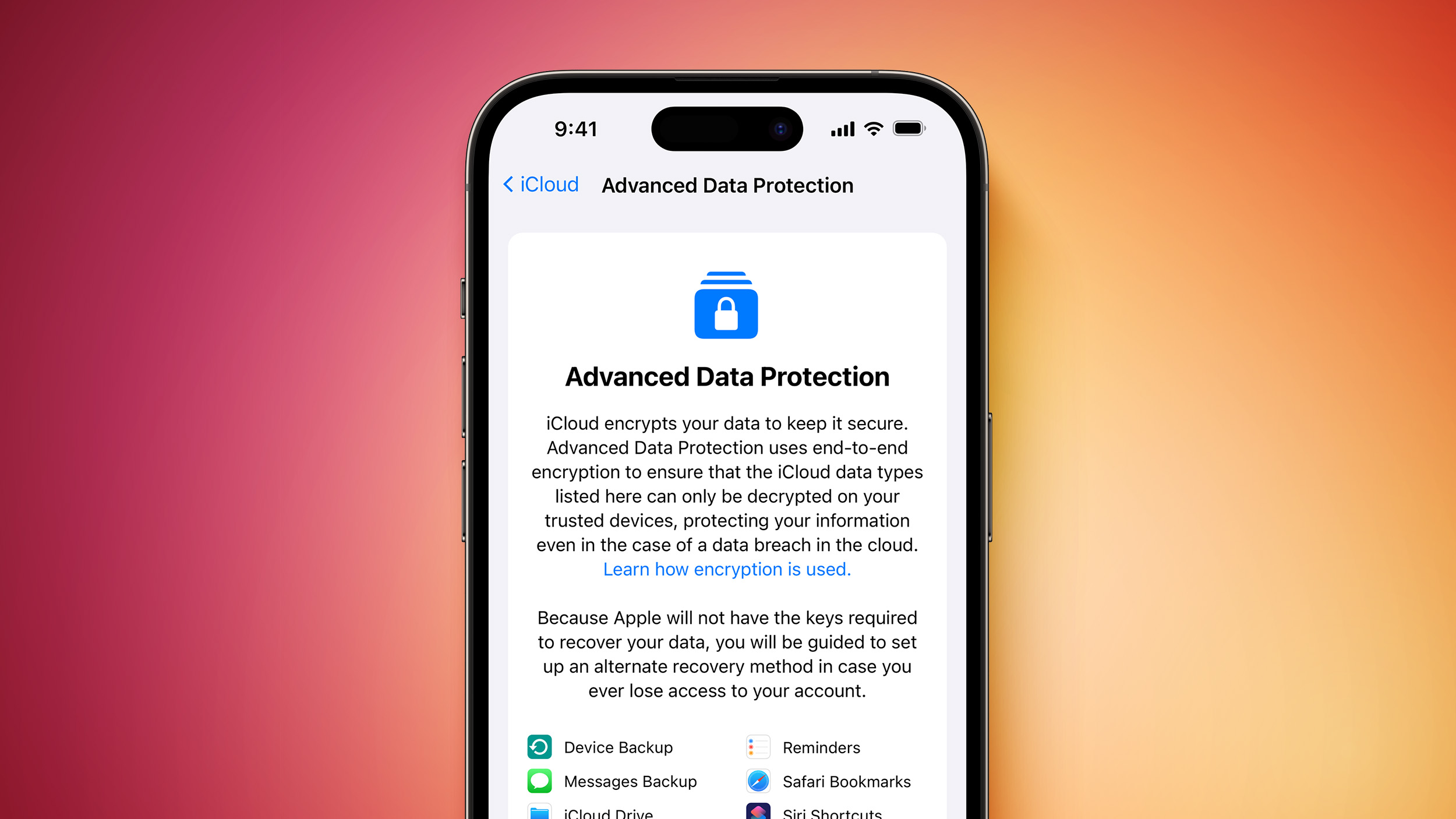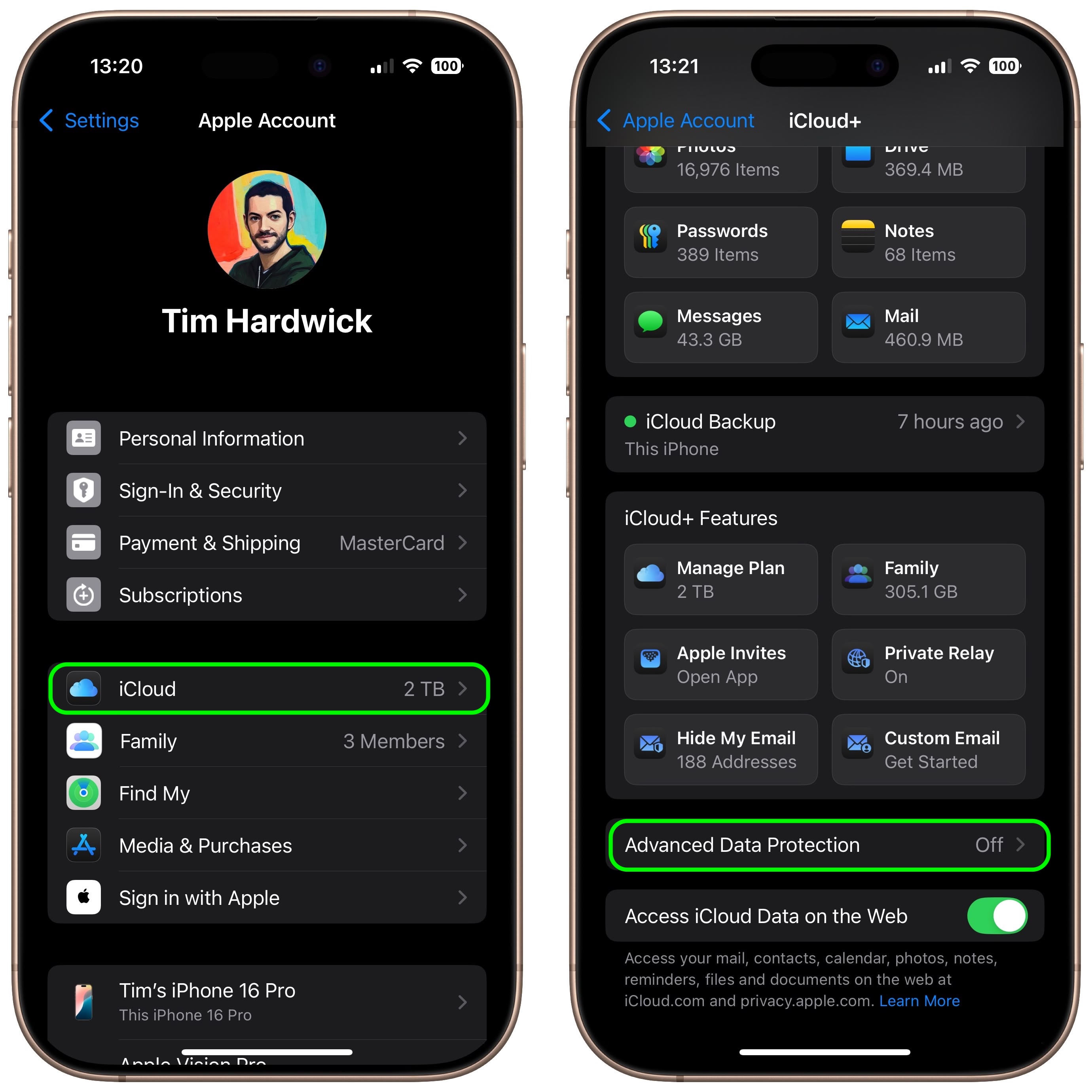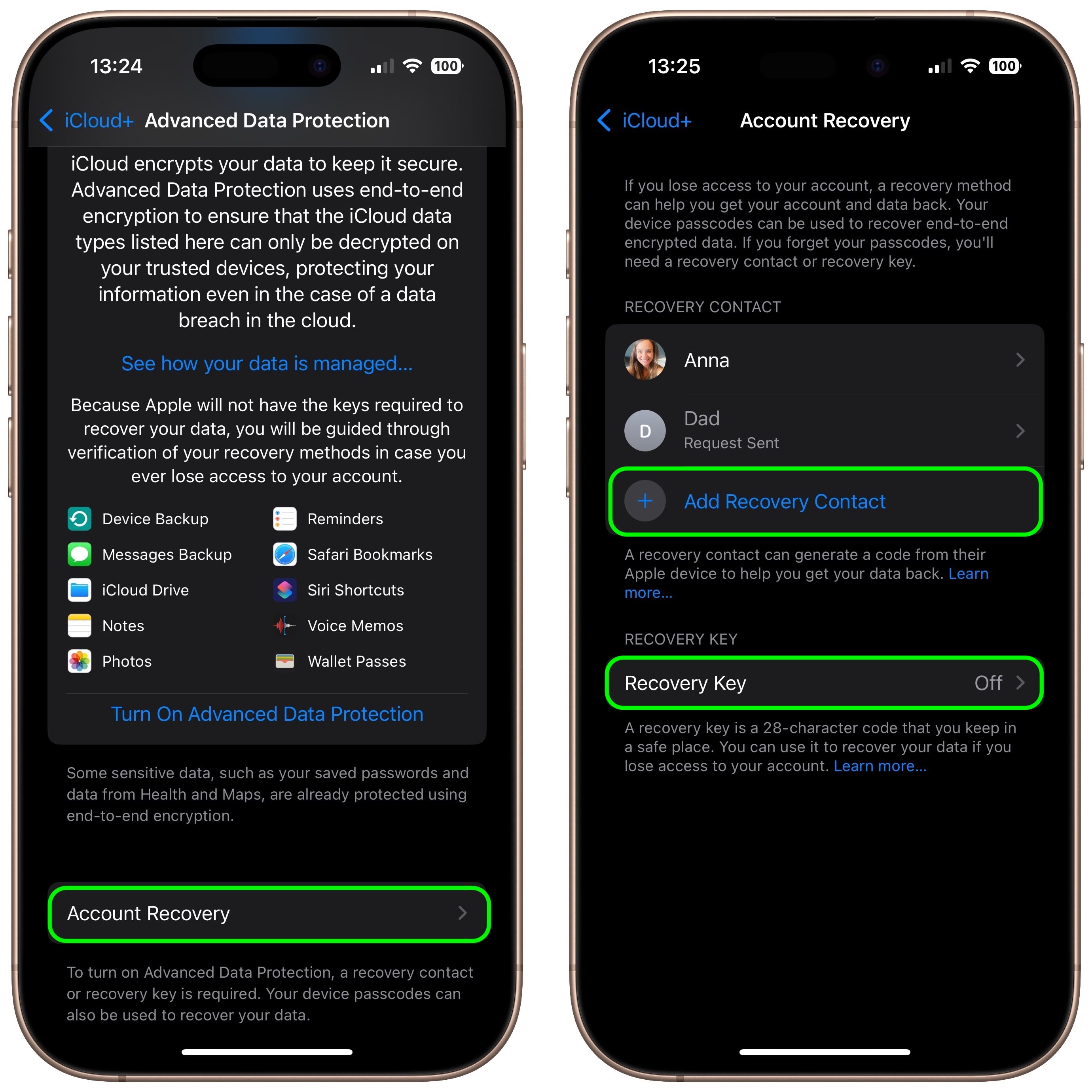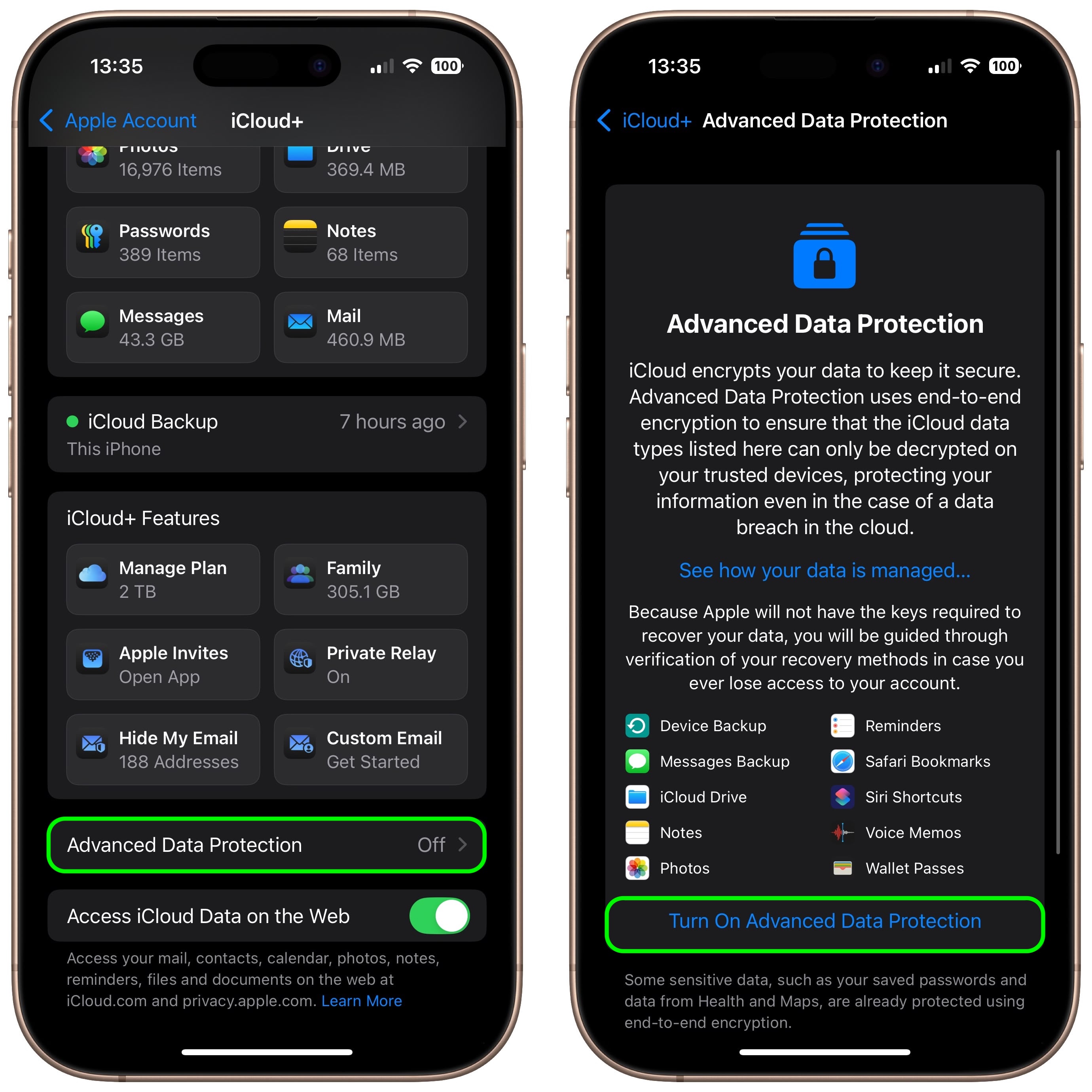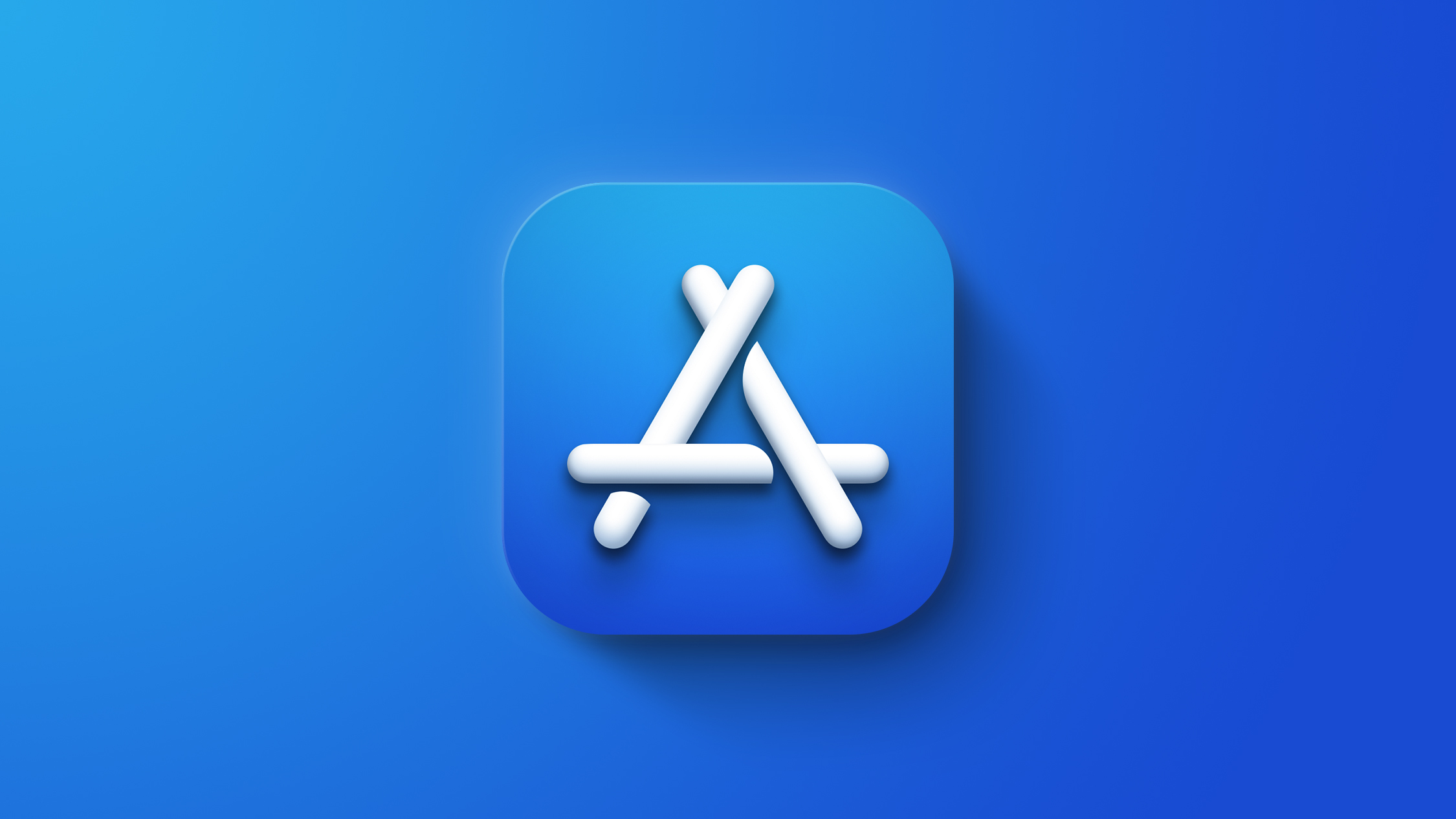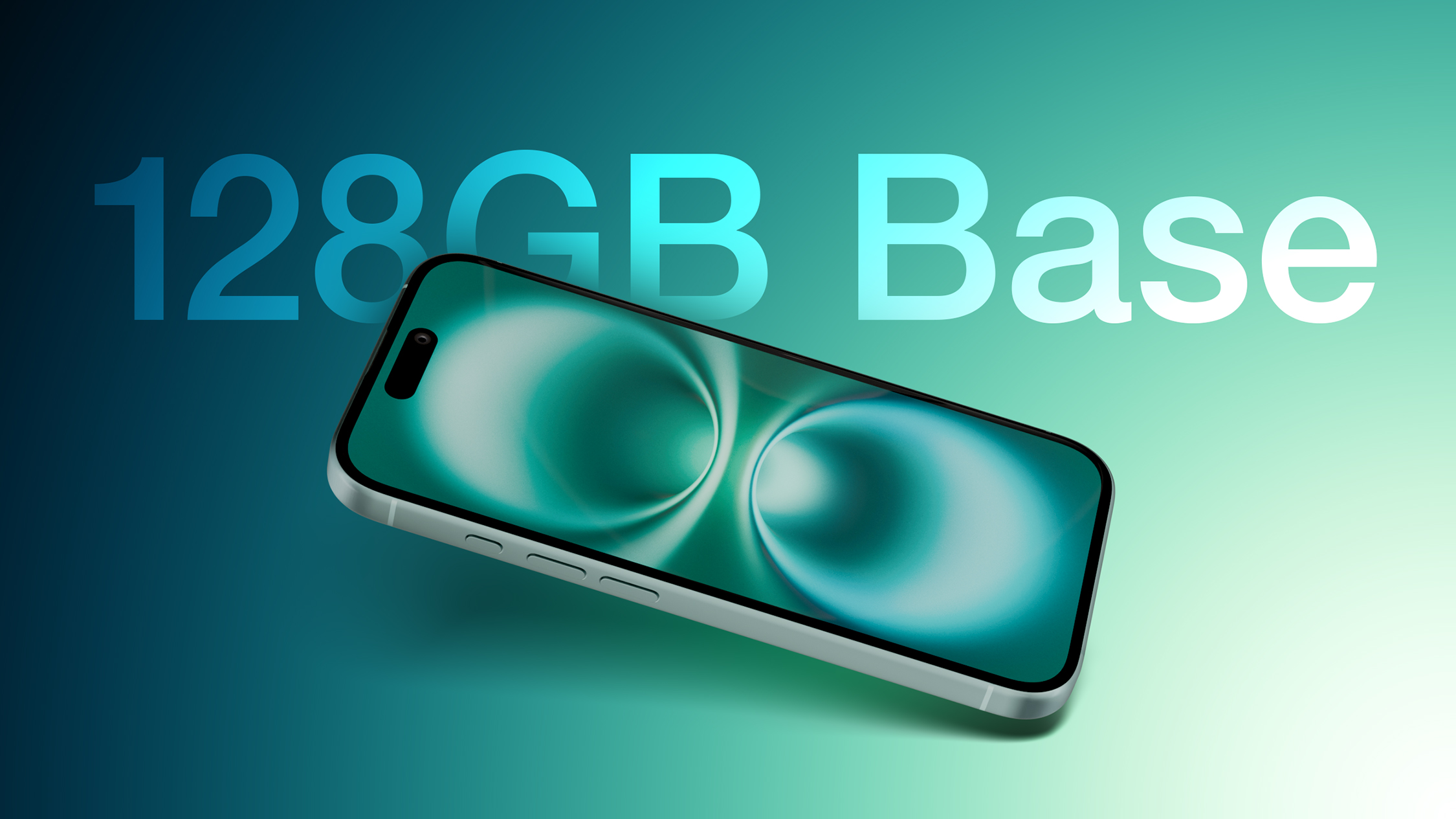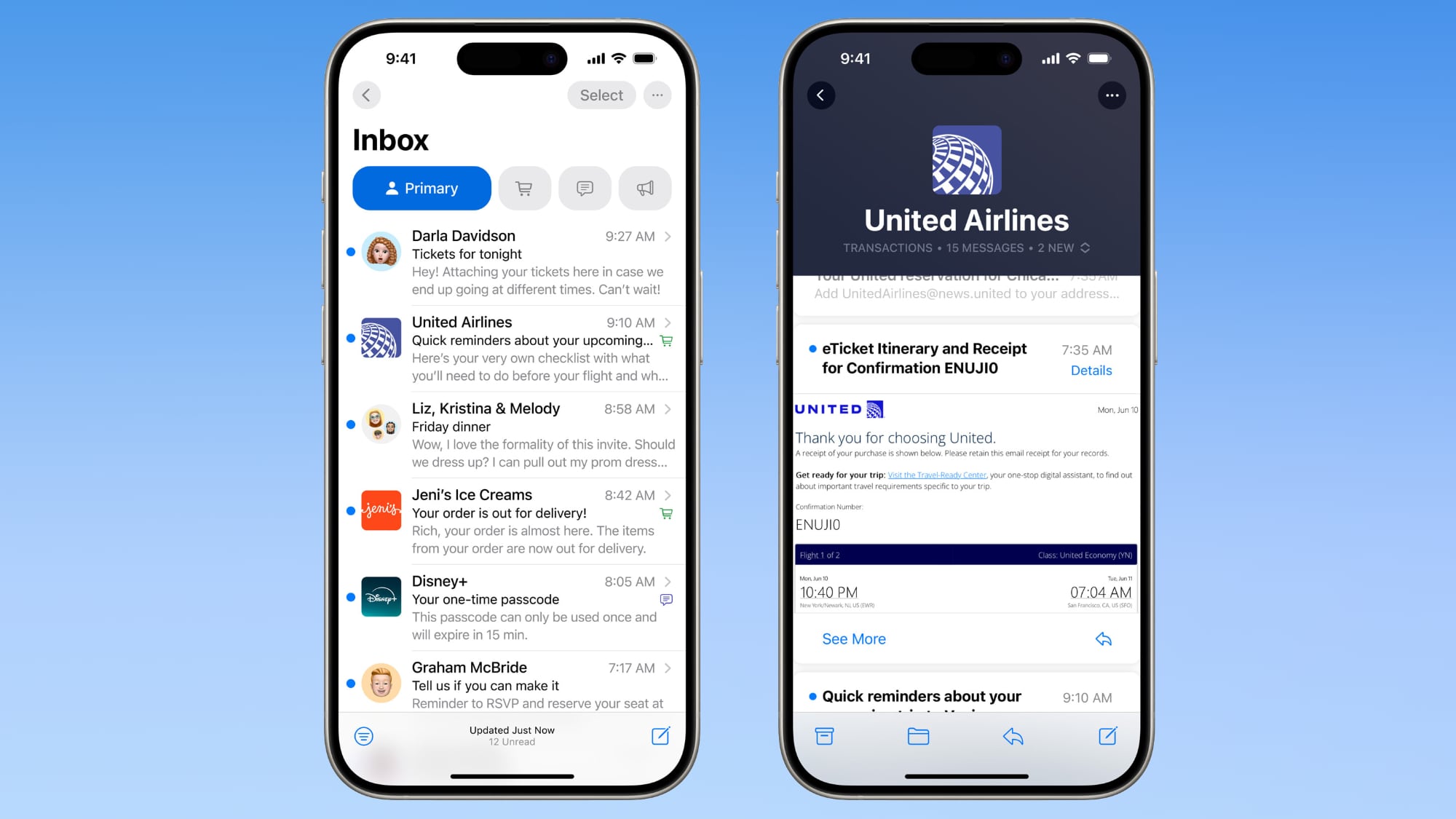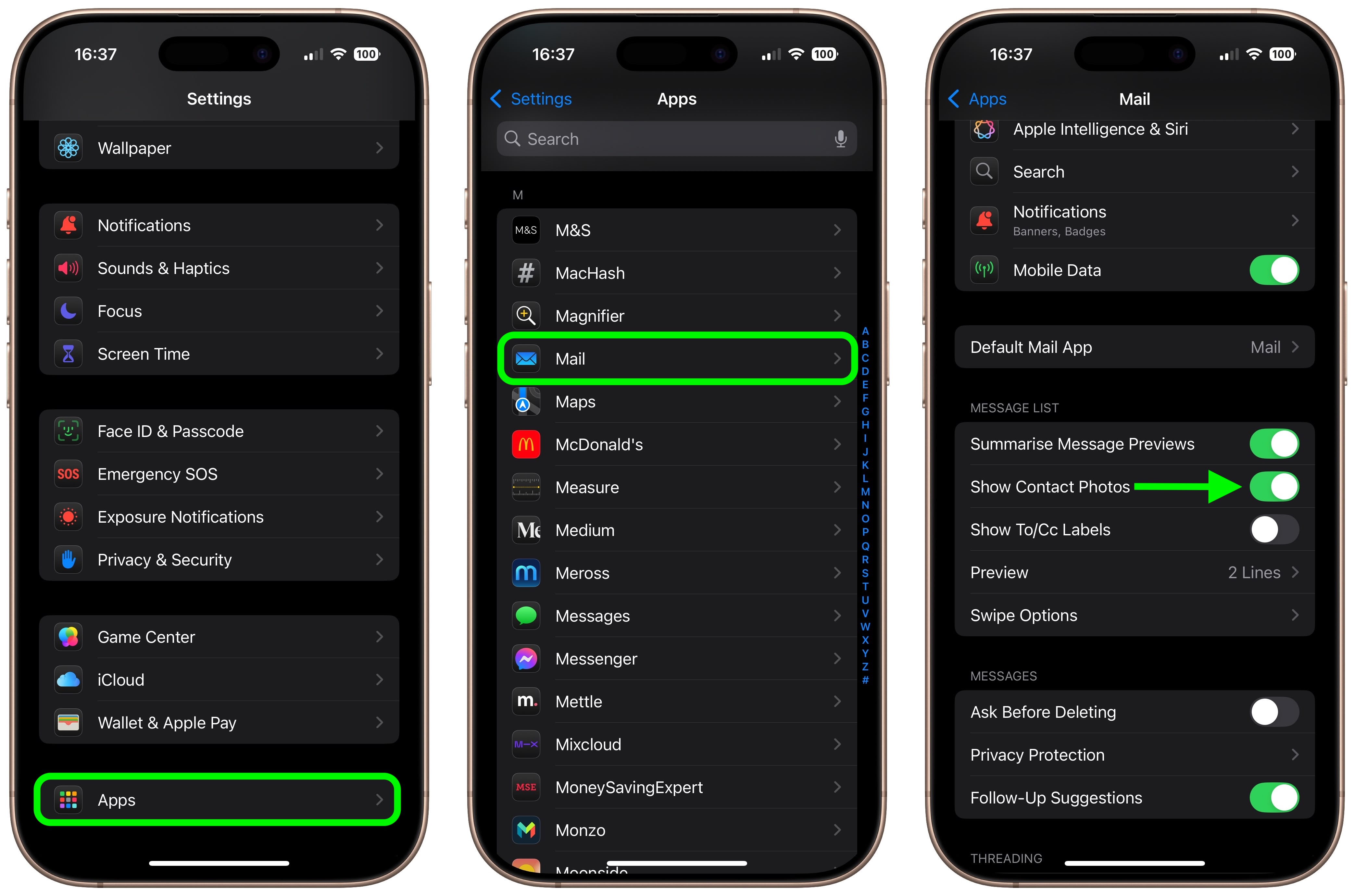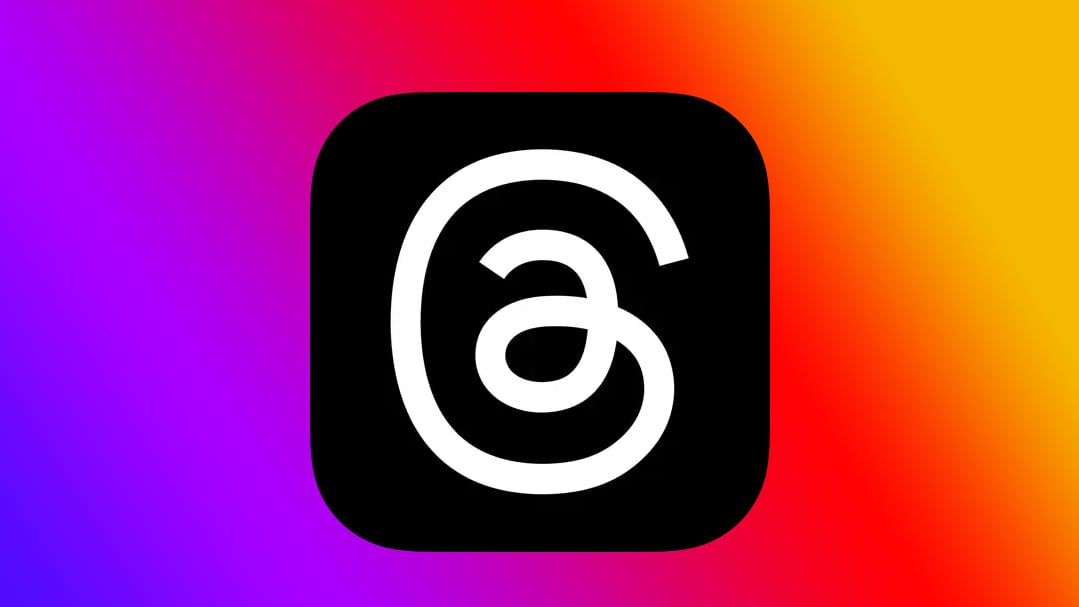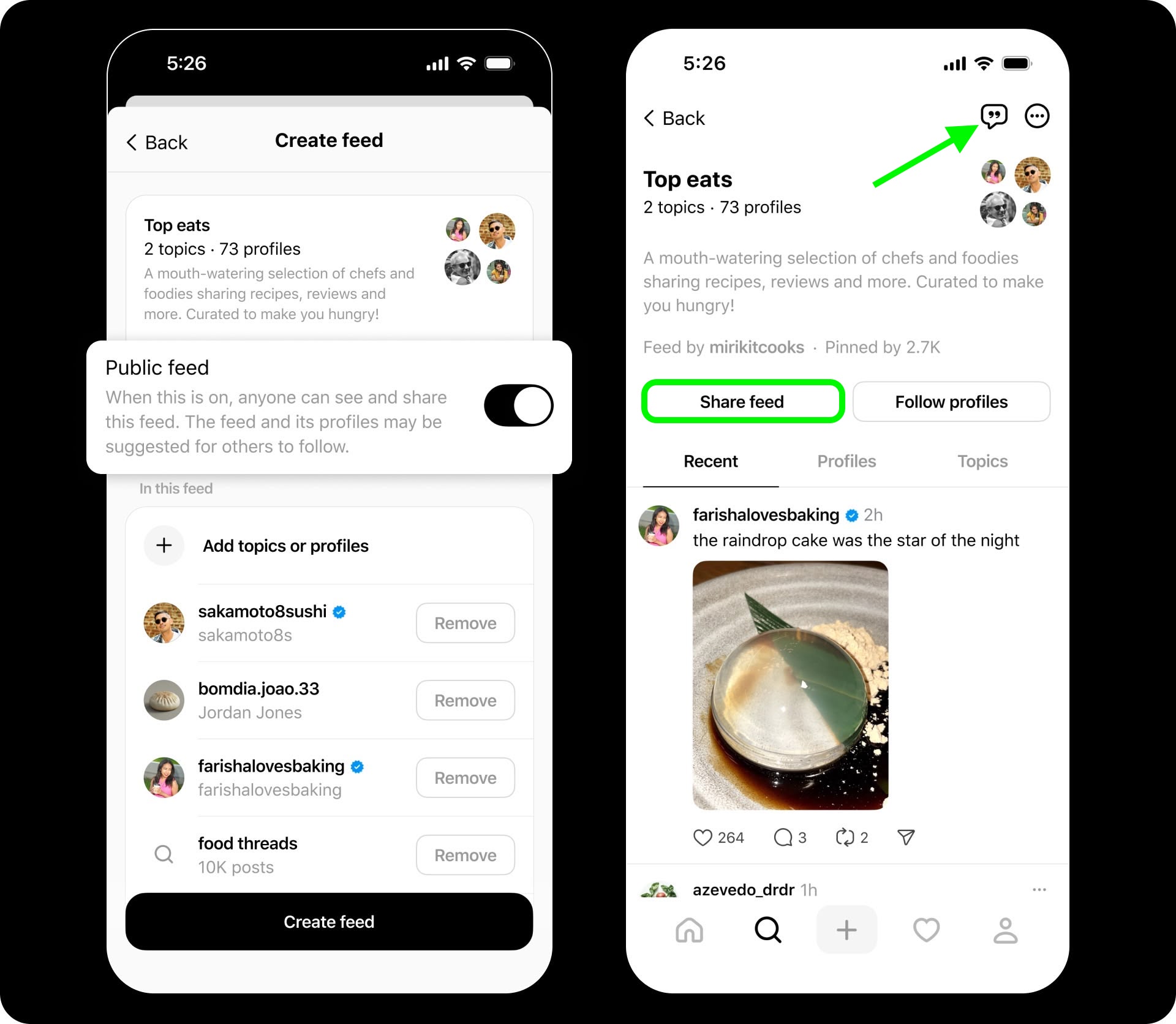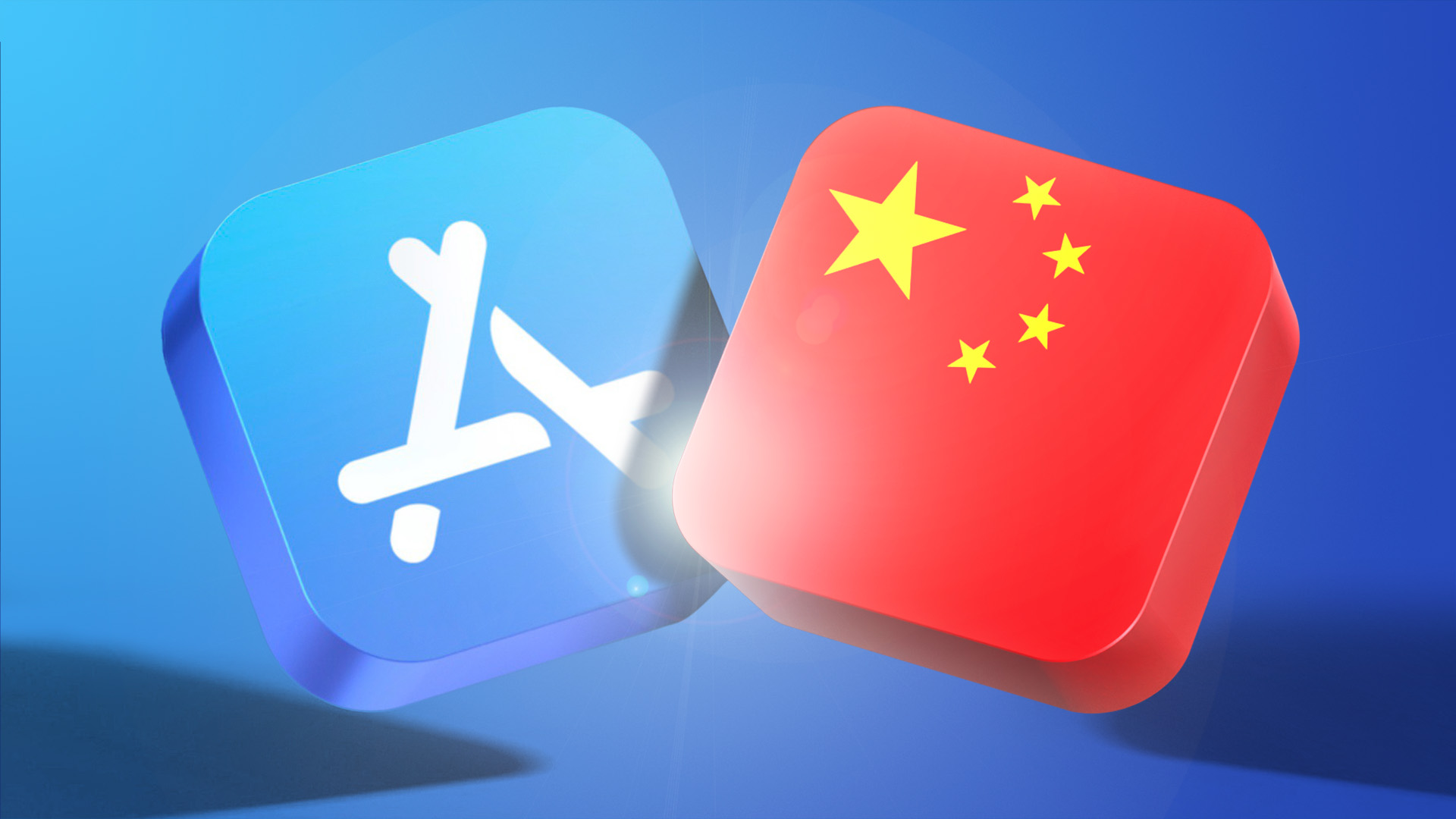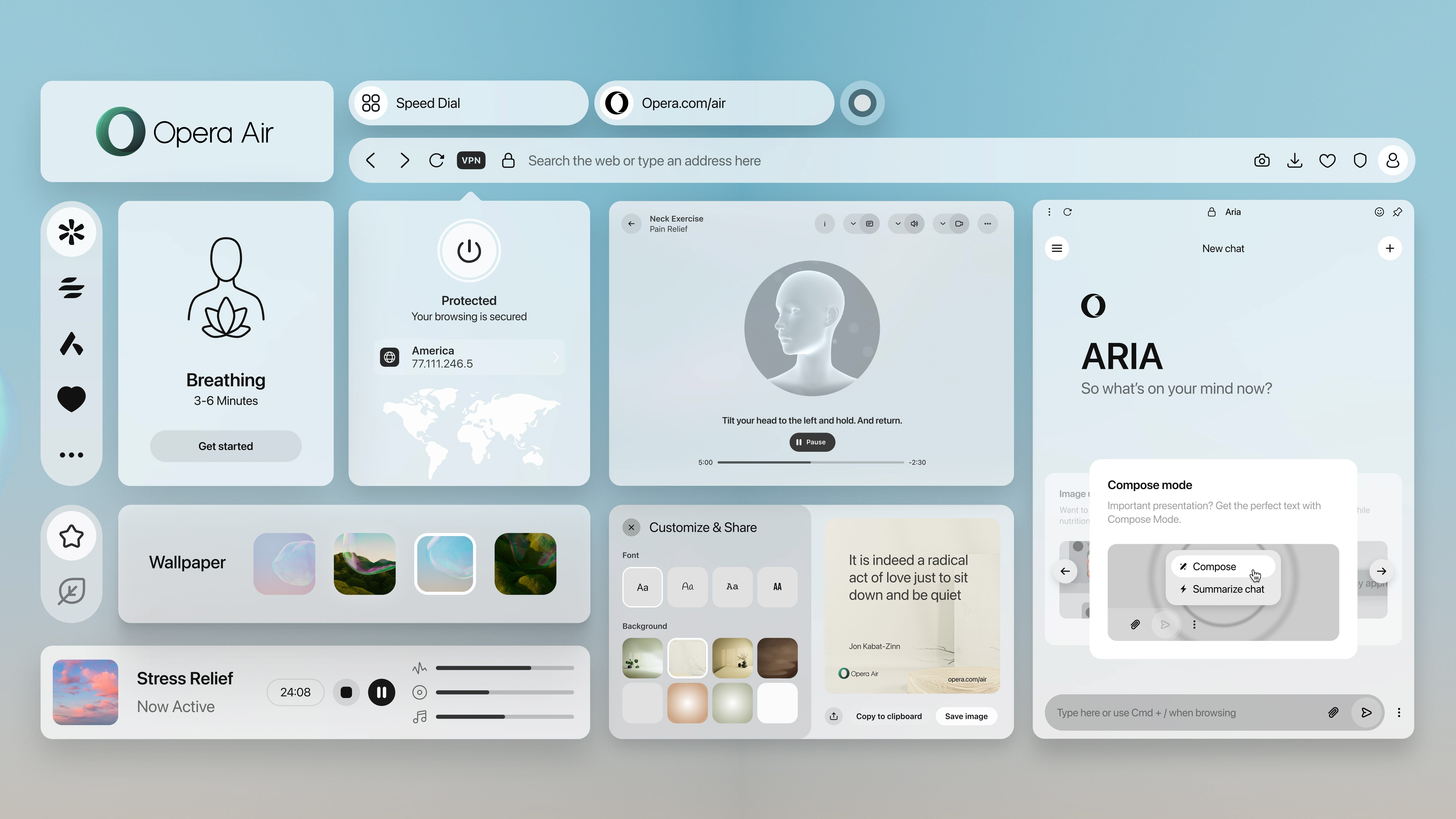Could Apple Pull iCloud Services From the UK Market?
Given today's bombshell report revealing the UK government's unprecedented demand for backdoor access to encrypted iCloud data, it's clear that Apple now faces a massive challenge. How it responds could have major implications for not only the company's privacy stance, but also its global operations as well as its reputation.

According to The Washington Post, the British government has secretly demanded that Apple give it blanket access to all encrypted user content uploaded to iCloud. The spying order reportedly came by way of a "technical capability notice," a document sent to Apple ordering it to provide access under the sweeping UK Investigatory Powers Act (IPA) of 2016.
According to sources that spoke to the publication, Apple is likely to stop offering encrypted storage in the UK as a result of the demand. Specifically, Apple could withdraw Advanced Data Protection, an opt-in feature that provides end-to-end encryption (E2EE) for iCloud backups, such as Photos, Notes, Voice Memos, Messages backups, and device backups.
In this scenario, UK users would still have access to basic iCloud services, but their data would lack the additional layer of security that prevents even Apple from accessing it. In other words, UK users' iCloud data would revert to standard encryption, allowing Apple to potentially access the contents of said data if it is compelled to do so by UK authorities when a warrant is issued. Although no specific instance has been publicly confirmed, the IPA grants UK security agencies the legal framework to request data from companies when it is accessible.
Apple could always pursue legal challenges. However, according to the IPA, while the company can appeal the "technical capability notice," it must comply with the order during the appeals process. Apple would be forced to temporarily implement the backdoor while arguing against its legality. Not only that, the IPA makes it a criminal offense to reveal that the government even made the demand.
Needless to say, such a gag order would prevent Apple from being up front with its customers about the security changes. When a backdoor is introduced — even if its purpose is to grant law enforcement access — it creates an alternative route into a secure channel. This not only increases the risk that bad actors might discover and exploit the vulnerability, but it also breaks the promise of complete confidentiality. Apple would essentially be lying to its customers about the watertightness of its E2EE security.
A more dramatic response from Apple would involve completely removing iCloud services from the UK. While this would protect Apple's encryption standards, it would severely disrupt millions of UK users who rely on iCloud for photo storage, device backups, and document syncing. Users would need to find alternative cloud storage solutions and potentially lose access to years of accumulated data.
Theoretically, Apple could attempt a technical workaround by restructuring iCloud to isolate UK user data. However, the IPA allows British authorities to compel tech companies to assist with data access regardless of where that company is based, so this solution might not satisfy the government's demand for worldwide access. It would also require costly engineering resources to implement, not to mention set a concerning precedent for other countries seeking similar arrangements.
"I don't see how this is to be resolved, as Apple has made such a big point of privacy for users," said Alan Woodward, a professor of cybersecurity at Surrey University, speaking to BBC News. "If they accede to this technical notice their reputation will be in tatters. They're bound to challenge it."
The UK's demand could also put the government's data-sharing agreement with the European Union at risk. The two regions currently have an agreement allowing the free flow of personal data between the EU and UK, but the arrangement faces review this year. The creation of an encryption backdoor could be viewed as violating the EU's strict data protection standards.
The spy order has already raised concerns in Washington, placing Apple in a potential diplomatic crossfire. According to The Post, the Biden administration first began tracking this issue since the UK first indicated it might demand backdoor access.
The timing is particularly awkward, given that US security agencies have recently been advocating for increased use of encryption to combat Chinese cyber threats. In December, the FBI, the National Security Agency, and the Cybersecurity and Infrastructure Security Agency jointly recommended that companies "ensure that traffic is end-to-end encrypted to the maximum extent possible" to protect against state-sponsored hacking. Creating a backdoor for UK authorities would directly contradict this guidance and could weaken US cyber defenses, potentially forcing Apple to choose between complying with UK law or protecting US national security interests.
It's worth noting that Apple has repeatedly and forcefully opposed creating backdoors in its products. In its March 2023 submission to UK Parliament, the company stated plainly: "We would never create a backdoor in our products." This echoes CEO Tim Cook's firm stance during the 2016 San Bernardino case, where he declared, "Apple has never built a backdoor into any of our products and never will."
The company doubled down on this position in its 2024 submission to the UK Parliament regarding changes to the IPA, warning that the provisions "could be used to force a company like Apple, that would never build a back door into its products, to publicly withdraw critical security features from the UK market."
Apple's core principle that "privacy is a fundamental human right" is a position it has consistently maintained through the years in the face of government demands for weakened encryption. Confronted by the UK government's latest encryption demands, the company must now prove whether its commitment to user privacy is truly unbreakable, or just a corporate slogan that crumbles under regulatory pressure.
This article, "Could Apple Pull iCloud Services From the UK Market?" first appeared on MacRumors.com
Discuss this article in our forums

According to The Washington Post, the British government has secretly demanded that Apple give it blanket access to all encrypted user content uploaded to iCloud. The spying order reportedly came by way of a "technical capability notice," a document sent to Apple ordering it to provide access under the sweeping UK Investigatory Powers Act (IPA) of 2016.
According to sources that spoke to the publication, Apple is likely to stop offering encrypted storage in the UK as a result of the demand. Specifically, Apple could withdraw Advanced Data Protection, an opt-in feature that provides end-to-end encryption (E2EE) for iCloud backups, such as Photos, Notes, Voice Memos, Messages backups, and device backups.
In this scenario, UK users would still have access to basic iCloud services, but their data would lack the additional layer of security that prevents even Apple from accessing it. In other words, UK users' iCloud data would revert to standard encryption, allowing Apple to potentially access the contents of said data if it is compelled to do so by UK authorities when a warrant is issued. Although no specific instance has been publicly confirmed, the IPA grants UK security agencies the legal framework to request data from companies when it is accessible.
Apple could always pursue legal challenges. However, according to the IPA, while the company can appeal the "technical capability notice," it must comply with the order during the appeals process. Apple would be forced to temporarily implement the backdoor while arguing against its legality. Not only that, the IPA makes it a criminal offense to reveal that the government even made the demand.
Needless to say, such a gag order would prevent Apple from being up front with its customers about the security changes. When a backdoor is introduced — even if its purpose is to grant law enforcement access — it creates an alternative route into a secure channel. This not only increases the risk that bad actors might discover and exploit the vulnerability, but it also breaks the promise of complete confidentiality. Apple would essentially be lying to its customers about the watertightness of its E2EE security.
The Nuclear Option
A more dramatic response from Apple would involve completely removing iCloud services from the UK. While this would protect Apple's encryption standards, it would severely disrupt millions of UK users who rely on iCloud for photo storage, device backups, and document syncing. Users would need to find alternative cloud storage solutions and potentially lose access to years of accumulated data.
Theoretically, Apple could attempt a technical workaround by restructuring iCloud to isolate UK user data. However, the IPA allows British authorities to compel tech companies to assist with data access regardless of where that company is based, so this solution might not satisfy the government's demand for worldwide access. It would also require costly engineering resources to implement, not to mention set a concerning precedent for other countries seeking similar arrangements.
"I don't see how this is to be resolved, as Apple has made such a big point of privacy for users," said Alan Woodward, a professor of cybersecurity at Surrey University, speaking to BBC News. "If they accede to this technical notice their reputation will be in tatters. They're bound to challenge it."
Global Implications
The UK's demand could also put the government's data-sharing agreement with the European Union at risk. The two regions currently have an agreement allowing the free flow of personal data between the EU and UK, but the arrangement faces review this year. The creation of an encryption backdoor could be viewed as violating the EU's strict data protection standards.
The spy order has already raised concerns in Washington, placing Apple in a potential diplomatic crossfire. According to The Post, the Biden administration first began tracking this issue since the UK first indicated it might demand backdoor access.
The timing is particularly awkward, given that US security agencies have recently been advocating for increased use of encryption to combat Chinese cyber threats. In December, the FBI, the National Security Agency, and the Cybersecurity and Infrastructure Security Agency jointly recommended that companies "ensure that traffic is end-to-end encrypted to the maximum extent possible" to protect against state-sponsored hacking. Creating a backdoor for UK authorities would directly contradict this guidance and could weaken US cyber defenses, potentially forcing Apple to choose between complying with UK law or protecting US national security interests.
It's worth noting that Apple has repeatedly and forcefully opposed creating backdoors in its products. In its March 2023 submission to UK Parliament, the company stated plainly: "We would never create a backdoor in our products." This echoes CEO Tim Cook's firm stance during the 2016 San Bernardino case, where he declared, "Apple has never built a backdoor into any of our products and never will."
The company doubled down on this position in its 2024 submission to the UK Parliament regarding changes to the IPA, warning that the provisions "could be used to force a company like Apple, that would never build a back door into its products, to publicly withdraw critical security features from the UK market."
Apple's core principle that "privacy is a fundamental human right" is a position it has consistently maintained through the years in the face of government demands for weakened encryption. Confronted by the UK government's latest encryption demands, the company must now prove whether its commitment to user privacy is truly unbreakable, or just a corporate slogan that crumbles under regulatory pressure.
This article, "Could Apple Pull iCloud Services From the UK Market?" first appeared on MacRumors.com
Discuss this article in our forums
